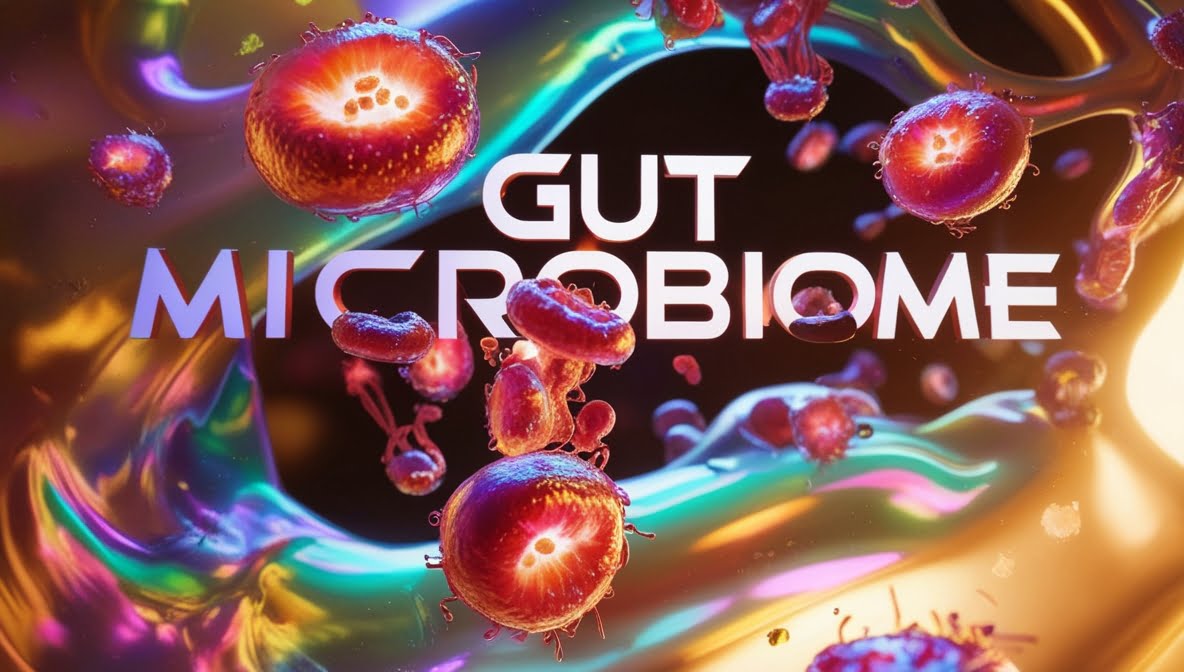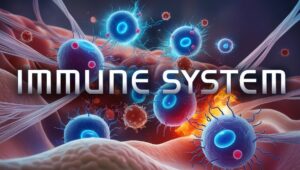What is the Gut Microbiome?
The gut microbiome refers to the trillions of microorganisms, including bacteria, viruses, fungi, and other microbes, residing in our intestines. These tiny inhabitants play a crucial role in digesting food, regulating the immune system, and even influencing our mood.
Why Should I Care About My Gut Microbiome?
You might be asking, “Why should I care about these microscopic creatures?” Well, here’s why:
- Digestion and Nutrient Absorption: The gut microbiome helps break down complex carbohydrates, proteins, and fats, ensuring we get the essential nutrients our bodies need.
- Immune System Support: A healthy gut microbiome helps to regulate the immune system, protecting us from infections and diseases.
- Mental Health: The gut and brain are connected through the gut-brain axis, with the microbiome influencing our mood and cognitive functions.
How Does the Gut Microbiome Affect My Health?
The state of your gut microbiome can significantly impact various aspects of your health. An imbalance in this ecosystem, known as dysbiosis, can lead to issues like:
- Digestive Problems: Conditions like irritable bowel syndrome (IBS) and inflammatory bowel disease (IBD) have been linked to dysbiosis.
- Obesity: An unhealthy gut microbiome may contribute to weight gain and obesity by affecting how our bodies store fat and regulate hunger hormones.
- Mental Health Issues: Dysbiosis has been associated with anxiety, depression, and other mental health disorders due to the gut-brain connection.
What Can I Do to Improve My Gut Health?
Taking care of your gut microbiome is crucial for overall health. Here are some practical steps:
- Eat a Diverse Diet: Include a variety of fruits, vegetables, whole grains, and fermented foods like yogurt and sauerkraut to support a healthy microbiome.
- Stay Hydrated: Drinking plenty of water promotes digestion and the health of the gut lining.
- Limit Processed Foods and Sugars: These can harm beneficial bacteria and promote the growth of harmful ones.
- Consider Probiotics and Prebiotics: Probiotics are live beneficial bacteria, while prebiotics are foods that feed these good bacteria. Together, they can help maintain a balanced microbiome.
How Do I Know if My Gut Microbiome is Unhealthy?
You might be asking, “How do I know if my gut microbiome is unhealthy?” Here are some signs to watch out for:
- Digestive Issues: Frequent bloating, gas, diarrhoea, or constipation.
- Food Intolerances: Trouble digesting certain foods, leading to discomfort.
- Fatigue: Persistent tiredness and lack of energy.
- Skin Problems: Issues like eczema or acne.
- Mood Swings: Experiencing anxiety, depression, or frequent mood changes.
How Do I Improve My Gut Microbiome?
Taking care of your gut microbiome is crucial for overall health. Here are some practical steps:
- Eat a Diverse Diet: Include a variety of fruits, vegetables, whole grains, and fermented foods like yogurt and sauerkraut to support a healthy microbiome.
- Stay Hydrated: Drinking plenty of water promotes digestion and the health of the gut lining.
- Limit Processed Foods and Sugars: These can harm beneficial bacteria and promote the growth of harmful ones.
- Consider Probiotics and Prebiotics: Probiotics are live beneficial bacteria, while prebiotics are foods that feed these good bacteria. Together, they can help maintain a balanced microbiome.
What Foods Heal Gut Microbiome?
Certain foods are particularly beneficial for your gut health:
- Fibre-Rich Foods: Fruits, vegetables, legumes, and whole grains.
- Fermented Foods: Yogurt, kefir, sauerkraut, kimchi, and kombucha.
- Prebiotic Foods: Garlic, onions, leeks, asparagus, and bananas.
What Destroys Gut Bacteria?
Maintaining a healthy gut microbiome also involves avoiding things that can harm it:
- Antibiotics: These can kill both harmful and beneficial bacteria.
- Processed Foods: High in sugar and unhealthy fats, they can disrupt the gut balance.
- Chronic Stress: Can negatively impact the gut microbiome.
- Lack of Sleep: Poor sleep patterns can harm your gut health.
What is the 7-Day Gut Reset?
The 7-day gut reset is a short-term dietary plan designed to help restore and balance your gut microbiome. It typically involves:
- Eliminating Processed Foods: Focus on whole, unprocessed foods.
- Eating Fermented Foods: Include yogurt, kefir, and sauerkraut.
- Increasing Fibre Intake: Load up on fruits, vegetables, and whole grains.
- Staying Hydrated: Drink plenty of water throughout the day.
- Reducing Sugar Intake: Avoid added sugars and artificial sweeteners.
What are the Top 10 Microbiome Foods?
Here are the top 10 foods that can boost your gut health:
- Yogurt
- Kefir
- Sauerkraut
- Kimchi
- Kombucha
- Garlic
- Onions
- Leeks
- Asparagus
- Bananas
What to Drink for Gut Health?
Drinks that promote gut health include:
- Water: Essential for overall health and digestion.
- Herbal Teas: Such as ginger, peppermint, and chamomile.
- Kombucha: A fermented tea rich in probiotics.
- Bone Broth: Contains nutrients that support gut health.
What Naturally Kills Bad Bacteria in the Gut?
Certain natural remedies can help eliminate harmful bacteria:
- Garlic: Has natural antibacterial properties.
- Oregano Oil: Contains compounds that can combat bad bacteria.
- Probiotics: Consuming probiotic-rich foods or supplements.
How Do I Test My Microbiome?
Testing your microbiome typically involves a stool sample that is analysed for the presence of different microorganisms. You can:
- Consult a Healthcare Professional: They can provide and interpret a test.
- Use At-Home Testing Kits: Available for purchase and convenient to use.
How Can I Fix My Gut Naturally?
Fixing your gut naturally involves:
- Eating a Balanced Diet: Rich in fibre, prebiotics, and probiotics.
- Staying Hydrated: Drinking plenty of water.
- Managing Stress: Practicing stress-relief techniques.
- Getting Enough Sleep: Ensuring quality sleep each night.
What is the Best Gut Supplement?
There are several supplements that can support gut health:
- Probiotics: Contain beneficial bacteria.
- Prebiotics: Feed the good bacteria in your gut.
- Digestive Enzymes: Help break down food for better digestion.
- Fibre Supplements: Such as psyllium husk or inulin.
The Future of Gut Microbiome Research
Research on the gut microbiome is rapidly evolving, with scientists uncovering new insights into its role in health and disease. Future studies may lead to more targeted treatments for conditions like IBS, obesity, and even mental health disorders by modulating the microbiome.
Final Thoughts
The gut microbiome is a fascinating and vital component of our health. By understanding and nurturing this complex ecosystem, we can improve our digestion, boost our immune system, and enhance our overall well-being.






